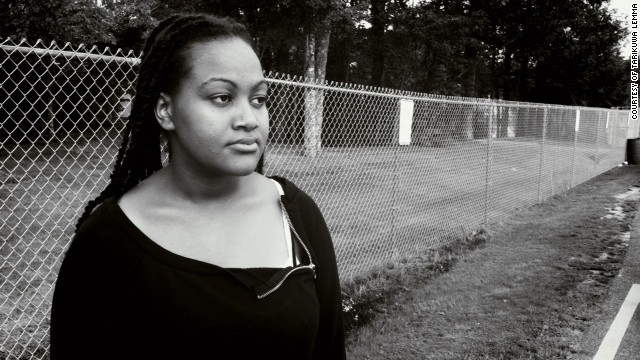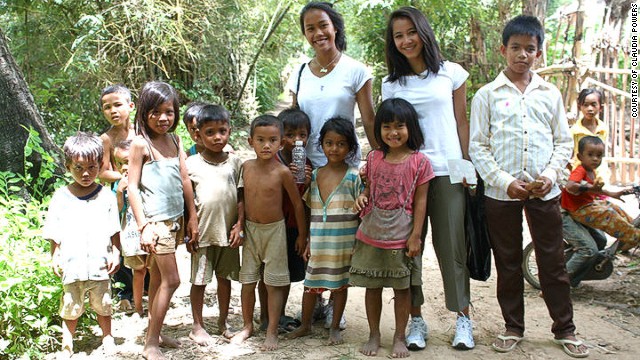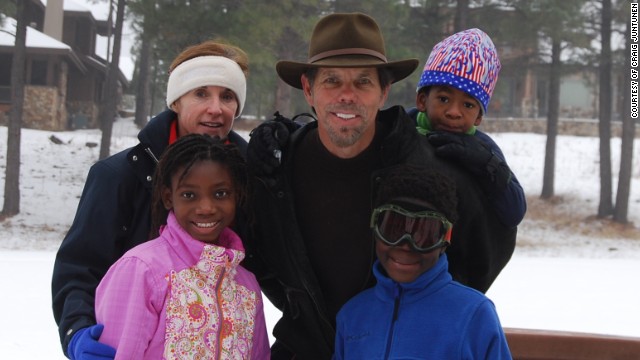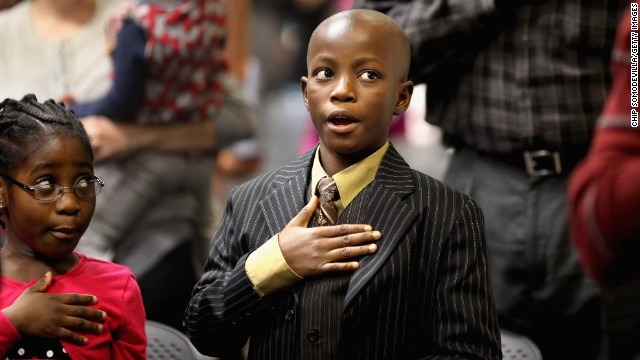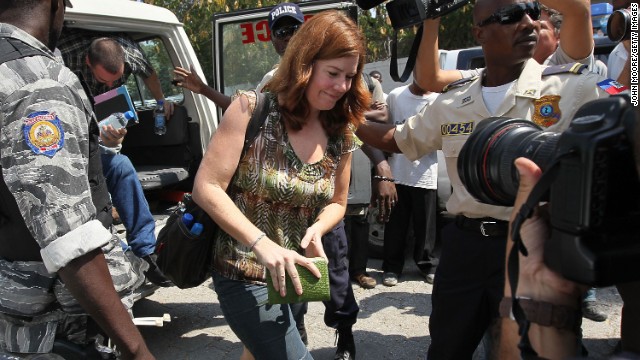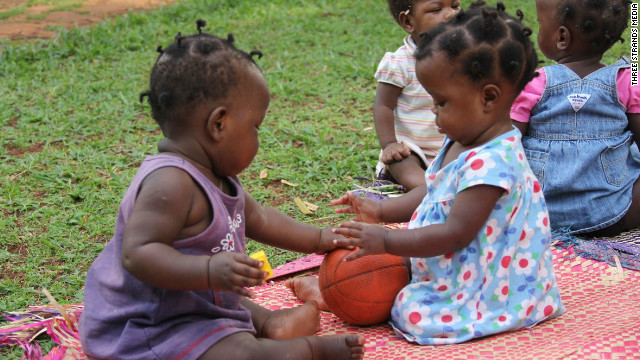This September 2013 article of CNN explains more in detail. I do believe that adoption is a good thing and can be very healing for any orphaned child. Nevertheless, some of these stories are just heartbreaking.. We hope for the best outcome in all of this as we continue to pray for the orphans in Ethiopia and around the world.
International adoption: Saving orphans or child trafficking?
updated 2:41 PM EDT, Wed September 18, 2013
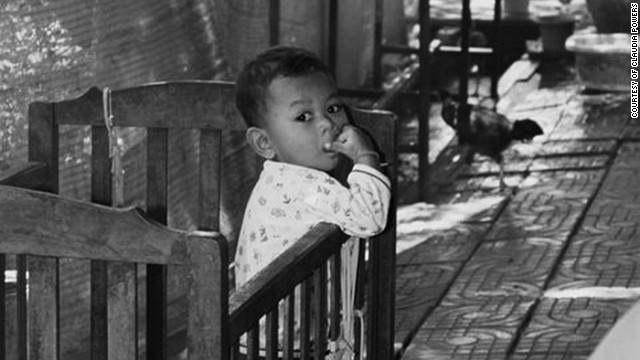
A Cambodian orphanage in 2010.
STORY HIGHLIGHTS
- Advocates say the current international adoption system is holding orphans hostage in red tape
- Critics say the hunger for adopting children from developing nations feeds nefarious practices
- UNICEF estimates there are 18 million children without parents globally
- Holt International spokesperson: "Adoption is a business, there is no question, sadly"
Editor's note: In this series, CNN investigates international adoption, hearing from families, children and key experts on its decline, and whether the trend could -- or should -- be reversed.
(CNN) -- Srey Powers' earliest memories in Cambodia are "waking up each morning, climbing trees to forage for fruit and berries with my cousins, and sitting around a fire each night with the one meal provided," the 19-year-old said.
Born in a refugee camp, Powers remembers traveling at age 6 for two days by moped, car and foot "only to be left at a building with many infants and toddlers and strange adults," she said.
At the orphanage, she met her new American family -- Claudia and Patrick Powers from Long Island, New York.
"From day one, I had a bond with my mother. Our first language was through playing soccer," recalled Powers, who was named most valuable player after leading her high school to the 2010 girls soccer state championship.
Powers was adopted from Cambodia in 1999.
Two years later, the U.S. closed Cambodia to adoptions due to allegations of corruption.
The U.S. adoption story of another 19-year-old is different.
"When I was 13, I was sold," said Tarikuwa Lemma, who grew up in Ethiopia.
She and her two sisters were adopted by an Arizona family who were told Lemma's parents died of AIDS.
"The truth was that our mother had died as a result of complications during childbirth, and our father was alive and well," said Lemma.
Tarikuwa Lemma thought she was being sent to the U.S. for a home study program.
Lemma's family was scammed by a man who said the girls were being sent to the United States on a study program, she said. Only when the sisters arrived did they realize their legal rights had been signed away to new parents.
"I wanted to escape from the people I felt had kidnapped us from our homeland, our culture and our family," said Lemma, who hopped from three different U.S. adoptive homes before becoming independent after turning 18. "My sisters and I had a father, a brother and older sisters, plus a large extended family that cared for us and loved us. We were middle class by Ethiopian standards, not poor."
These tales paint the divide on which, experts say, the legal and ethical debate on international adoption rests: Do the risks of abuse in a minority of cases outweigh the larger good that most adoptions provide?
Healing or 'hostage taking'?
As international adoption becomes more difficult, a growing number of voices in the U.S., Australia and elsewhere are pushing to reduce restrictions that limit adopting from abroad.
The only institution I can think of that when there's a problem, they shut it down, is international adoption
Elizabeth Bartholet, Harvard Law School
Elizabeth Bartholet, Harvard Law School
"In every human endeavor, there is a chance for abuse," said Elizabeth Bartholet, director of the Child Advocacy Program at Harvard Law School, who adopted two children from Peru in the 1980s.
"But if a plane goes down, they don't ground the whole airline industry ... the only institution I can think of that when there's a problem, they shut it down, is international adoption."
Critics argue the hunger to adopt children from developing nations helps feed nefarious practices, as families are often deceived or coerced into giving their children up for adoption.
"The same story happens again in country after country," said David Smolin, director of the center for Children, Law and Ethics at Samford University.
Smolin became a legal expert on international adoption issues after he and his wife adopted two daughters from India in 1998 only to discover that the girls were stolen from their mother.
Smolin, along with many other experts and organizations -- including UNICEF and the Hague Convention on Intercountry Adoption -- believe that orphans being adopted from abroad should be a last-case scenario, with more emphasis placed on helping keep children in their home country, such as providing day care, foster care, better orphanages and more domestic adoption.
Asked whether abuse in a minority of adoption cases should result in the closure of entire countries, Smolin said: "That's a false choice. I don't appreciate our family or my daughters' family in India being used as collateral damage. That's like hostage-taking."
Srey Powers, adopted from Cambodia when she was six years old, visits her birth sister's village in 2010.
International adoption 'Stuck'
Adoption advocates argue the current system is holding children hostage, that developing in-country programs are at least a generation away -- time that the millions currently languishing in orphanages can ill afford.
"The de facto result (of in-country preference) is they would prefer to have the children in institutional life rather than intercountry adoption," Bartholet said. "The results are more developmental problems, more kids on the street and more cost to the government to institutionalize these kids."
Until the global decline of transnational adoption in 2004, "40,000 kids a year were getting really good homes and moving from devastating circumstances," according to Bartholet. "That's an amazing social program that changes people at no cost to the home country. To shut that down is tragic."
We have to create the social and political will to deal with these things
Craig Juntunen, adoption advocate
Craig Juntunen, adoption advocate
Craig Juntunen, a former quarterback in the Canadian Football League and an entrepreneur who retired at age 43, toured a Haiti orphanage in 2006.
The experience changed his life, as he watched children "climbing over each other" to get a hug.
Later that year, he and his wife adopted three children from Haiti.
"Looking into their eyes when they first came, we were filled with a happiness we had never felt before," said Juntunen, who lives in Scottsdale, Arizona. "But, I was constantly reminded of how kids living in institutions, deprived of such simple things as human contact, are robbed of the opportunity to grow into happy, healthy people."
He wrote about his experience in a book, "Both Ends Burning," which is now the name of the international adoption advocacy group he founded.
The group produced a documentary, "Stuck," documenting the travails and successes of people attempting to adopt in Vietnam, Ethiopia and Haiti. In each case, children matched for adoption continue to spend years in institutions while adoption requests move at glacial speeds across two countries.
Juntunen's group took the film on the road, showing it in cineplexes, film festivals and churches across 60 cities in 78 days, culminating in an "empty stroller march" on Capitol Hill in Washington.
Craig Juntunen with his wife Kathi, and their children (from left) Espie, Amelec, and Quinn. "Looking into their eyes when they first came, we were filled with a happiness we had never felt before."
A goal of Juntunen's group is to raise international adoption in the U.S. to 50,000 children a year and cut the average time to approve adoptions to nine months.
In 2011, fewer than 10,000 overseas children were adopted in the U.S., with an average wait time of three years.
"We have to create the social and political will to deal with these things," he said.
The boom-bust cycle
One country closes, and another country becomes this popular hotspot
Kathryn Joyce, author of "The Child Catchers"
Kathryn Joyce, author of "The Child Catchers"
To debunk the idea that corruption is the exception in the current international adoption systems, critics point to Guatemala, which was shut down in 2007 for adoption after allegations of families being coerced and children kidnapped to feed U.S. demand.
Before Guatemala closed to U.S. adoptions, the ratio of children adopted hit one per every 100 live births, according to the Adoption Council -- more than double the rate in Latvia, the next-highest nation.
Two years later, the number of foreign adoptions from Guatemala dropped 90%.
As Guatemala closed, adoptions in Ethiopia -- now the second-largest supplier of orphans to American families -- skyrocketed from fewer than 900 in 2003 to 4,564 in 2009.
"International adoption tends to work in this boom-bust cycle ... one country closes, and another country becomes this popular hotspot," said Kathryn Joyce, author of "The Child Catchers: Rescue, Trafficking and the New Gospel of Adoption."
Many adoption agencies went from Guatemala to Ethiopia where "the number of agencies leaped from five to 50 in a few short years," said Joyce, who traveled to Ethiopia while researching her book.
Brokers who source children for agencies can earn as much as $5,000 per child -- "five times the amount they might expect to earn a year," she said. "The influence of all this U.S. money can be distorting."
Born in Liberia, Cynthia Newton, left, and her brother, James, say the Pledge of Allegiance during their 2011 citizenship ceremony.
Whole economies can emerge when international adoption blooms in a developing nation. Employment from agencies, new guesthouses and hotels for the influx of prospective parents, and even a rise in "searchers" -- people paid to investigate the birth origins of a child like Lemma when U.S. families begin to doubt the stories agencies provide.
"Adoption is a business, there is no question, sadly," said Susan Soonkeum Cox, vice president of policy and external affairs at Holt International, a nonprofit Christian adoption agency based in the U.S. "Many people got into this because it's an opportunity to help (orphans), but for other people it was a lucrative business opportunity. You could see this in the explosion of adoption agencies and practitioners.
"There are so many cases of corruption ... as an adoption agency, no one is more appalled, because we all get stuck with it and have our reputation smeared."
Haiti earthquake and adoption theology
The international adoption debate played out on the world stage in the aftermath of the devastating 2010 Haiti earthquake, which killed 200,000, when a group of U.S. Christian missionaries were accused of kidnapping "orphans."
Laura Silsby led a group of 10 missionaries from Idaho that was stopped at the Dominican Republic border as they tried to cross the border with 33 children without proper legal documentation.
Silsby originally claimed the children were orphaned or abandoned, but the Haitian government and the orphans' charity SOS Children later found that all had at least one living parent.
Laura Silsby, the head of New Life Children's Refuge, arrives for a Port-au-Prince court hearing in February 2010 in Haiti.
Charges against all but Silsby were dropped; Silsby was jailed for four months before being tried on charges of arranging illegal travel by a Haitian court and released on time served.
Some parents told CNN they placed their children in Silsby's care because that was the only way they knew to ensure a better quality of life for them.
Silsby's group, New Life Children's Refuge, said it was going to house the children in a converted hotel in the Dominican Republic and later move them to an orphanage.
According to the itinerary of Silsby's mission, part of the group's plan, in addition to providing immediate humanitarian assistance, was for the planned orphanage to "equip each child with a solid education and vocational skills as well as opportunities for adoption into a loving Christian family."
Adoption is a business, there is no question, sadly
Susan Soonkeum Cox, Holt International
Susan Soonkeum Cox, Holt International
While the incident -- which some labeled "kidnapping for Jesus" -- painted a dark picture of good intentions for international adoption advocates, the Haiti earthquake also offered a victory when in April 2010, the Obama administration granted "humanitarian parole" to speed up U.S. adoptions of Haitian children already in progress.
By August of that year, some 1,500 Haitian orphans joined U.S. families.
Can the system be fixed?
Smolin of Samford University says the problem with the current international adoption system comes down to one issue: money.
"I'm not a proponent of shutting down intercountry adoption," Smolin said. But when a large amount of cash comes to developing countries with weak governments, "it reproduces systematic problems over and over again."
Smolin wants to see limits on the amount of money and number of agencies that can operate in a given country.
Bartholet of Harvard says limiting agencies will place more control in weak governments of developing countries.
"If you shut down private intermediaries, you shut down international adoption," she said.
Children play at Amani Baby Cottage, an orphanage in Uganda.
Juntunen's group wants a U.S.-led effort to help developing countries with technology and training that will improve records -- such as the creation of accurate birth certificates -- and faster adoption procedures.
"I believe we have to start bringing nations together to talk about this," he said.
Tarikuwa Lemma, who seven years ago was taken from her mother in Ethiopia, is writing a book about her experiences as she's about to start college.
"I am fighting to make sure that first families and adoptive families know the truth about the possibilities of fraud and human trafficking in adoption," she said.
Meanwhile, Srey Powers is a sophomore studying accounting at State University of New York at Oneonta. While visiting Cambodia three years ago, she found her grandmother, who spoke of the difficult choice to give Srey up for adoption.
At one point, her grandmother turned to her adoptive mother and asked in a harsh tone if she had her "working in servitude, farming the fields." Her Cambodian grandmother assumed Powers' suntan was from working outside, not playing soccer.
"Watching my mother's attempt to put my (grandmother) at ease, I had a new level of gratitude for her, my father, my siblings and my life in America," she said.
